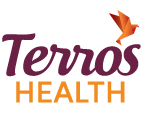Recovery & Resilience:
Peer Support at Terros HealthWhen it comes to substance use disorder and mental illness, Terros Health knows that treatment works, and people recover. We have been helping people recover for nearly 50 years.
The Substance Abuse and Mental Health Administration (SAMHSA) rather broadly defines recovery “as a process of change through which individuals improve their health and wellness, live self-directed lives and strive to reach their full potential.”
This past weekend many attended the 13th annual Celebrate the Art of Recovery Expo (CARE) in downtown Phoenix. What is the Celebrate the Art of Recovery Expo (CARE)? CARE offers positive solutions to anyone facing challenges with alcohol and drugs. CARE gives people the opportunity to be well-informed about addiction to alcohol and drugs, and the many pathways to recovery. Many organizations that provide recovery services participated and helped educate attendees about their options, including Terros Health.
Individuals in recovery (and their families) can build resilience by developing social supports. Social connection is a critical component for resilience and recovery. At Terros Health, we emphasize this crucial aspect by building support groups at each site tailored to the needs demonstrated by patients and their counselors at those sites.
Peers are a vital part of this work and help build a sense of community and belonging.
Peers support specialists are individuals with an authentic lived recovery experience who have been trained and certified to offer support to their peers who are beginning or in the midst of a recovery journey. Peer support upholds one of the science-based whole health and resiliency factors: a meaningful support network.
Working as a peer development specialist, Trish Bleth oversees the training program that provides peer services for Terros Health patients. “By modeling a recovery lifestyle and sharing their recovery story a Peer Support Specialist promotes a sense of hope and that recovery is possible. They can help a person move through difficult situations and build on their strengths. They bring the peer point of view and offer insight to their teams,” shared Trish. “The value of lived experience is priceless.”
Research indicates that isolation increases stress, negatively affecting health. Building a community of peer support promotes resilience, activating self-management for better health outcomes. Coming together to support each other, whether one-on-one or in support groups, is an important strategy to handle stress and boost resilience among peer providers and those they serve to get on and stay on the path to recovery.
More help and resources:
- Terros Health, (602) 685-6000 to schedule an appointment with a behavioral health clinician
- Crisis Response Network, 1-800-631-1314 or 602-222-9444 (Central Arizona); 1-877-756-4090 (Northern Arizona)
- Community Wide Crisis Line, 520-622-6000 (Southern Arizona)
- If you have private insurance, call your insurance.
- If you have AHCCCS, please call Mercy Care (AHCCCS and Medicaid recipients), 1-800-564-5465.
- National HelpLine: 1-800-662-4357 Provided by SAMHSA, a free, confidential. 24/7, 365 day-a-year treatment referral and information service, in English or Spanish, for individuals and families facing mental and/or substance use disorders.
- Mental Health America of Arizona, mhaarizona.org, 480-982-5305.
